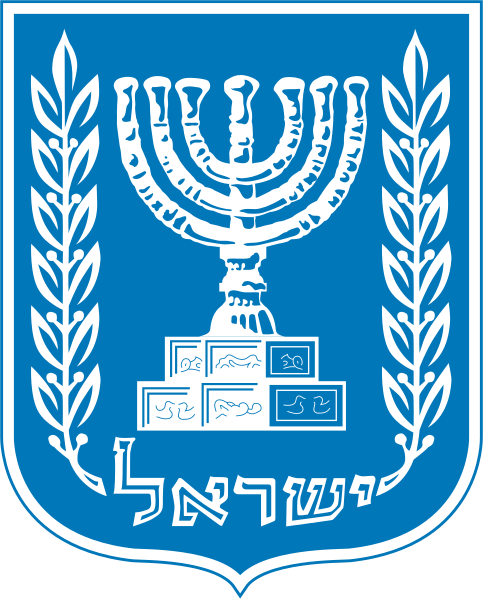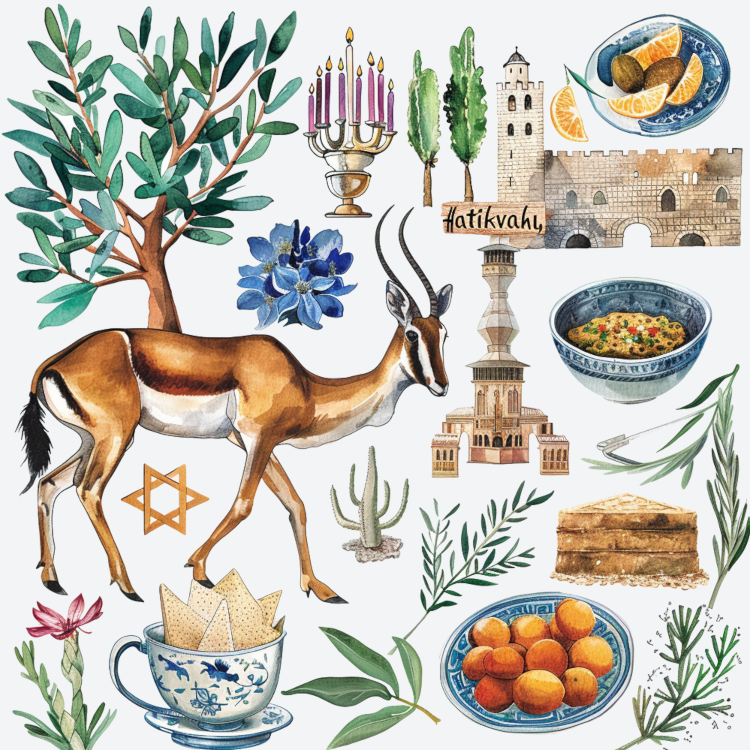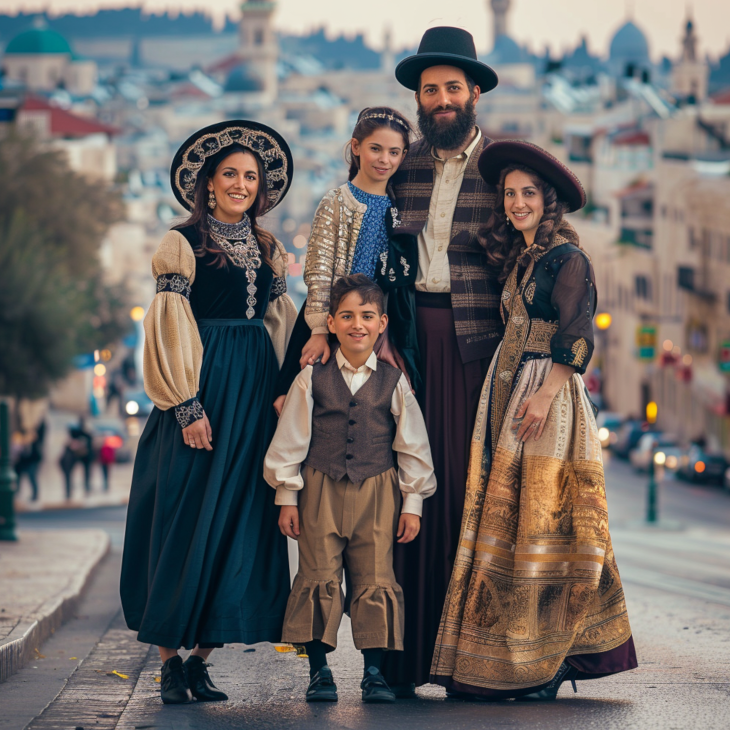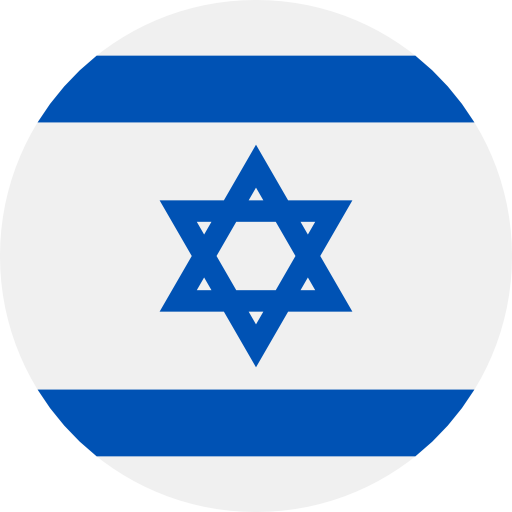About IL

Location
Israel is a country located in the Middle East, bordered by Lebanon to the north, Syria to the northeast, Jordan to the east, and Egypt to the southwest. It has a coastline along the Mediterranean Sea to the west.
Capital
The capital city of Israel is Jerusalem, which is also its largest city. However, Jerusalem's status as the capital is internationally disputed, with many countries recognizing Tel Aviv as the de facto capital.
Population
As of the latest estimates, Israel has a population of approximately 9.3 million people.
Area
Israel covers a total land area of about 22,072 square kilometers (8,522 square miles).
Official Language
Hebrew and Arabic are the official languages of Israel. English is also widely spoken and used for official purposes.
Government
Israel is a parliamentary democracy with a system of proportional representation. The President of Israel serves as the head of state, while the Prime Minister is the head of government. The Knesset, Israel's parliament, is a unicameral legislature.
Religion
Israel is known as the homeland of the Jewish people and has a majority Jewish population. It is also home to significant Muslim, Christian, and Druze communities.
Economy
Israel has a technologically advanced economy with a focus on high-tech industries such as cybersecurity, biotechnology, and aerospace. It is often referred to as the "Startup Nation" due to its thriving startup ecosystem.
History
Israel has a rich history dating back thousands of years, with significant archaeological sites and historical landmarks. It is considered the birthplace of Judaism, Christianity, and Islam, and has been at the center of numerous historical events and conflicts.
Conflict
Israel has been involved in conflicts with neighboring Arab states and the Palestinian territories for much of its history. The Israeli-Palestinian conflict, in particular, remains a significant issue with ongoing tensions and periodic outbreaks of violence.
Culture
Israel has a diverse and vibrant culture influenced by its multicultural population and rich history. It has made significant contributions to fields such as literature, music, art, and cuisine.
Tourism
Israel is a popular tourist destination known for its historical sites, religious landmarks, vibrant cities, and diverse landscapes, including the Dead Sea, Jerusalem, Tel Aviv, and the Sea of Galilee.

National Items of Israel
Israeli Gazelle
The Israeli Gazelle (Gazella gazella) is the national animal of Israel. Known for its grace and agility, it symbolizes the beauty and natural heritage of the country.
Cyclamen (Cyclamen persicum)
The Cyclamen, specifically Cyclamen persicum, is the national flower of Israel. Its delicate and vibrant blooms represent the natural beauty and diversity of the Israeli landscape.
Olive Tree
The Olive Tree (Olea europaea) is the national tree of Israel. It symbolizes peace, longevity, and the agricultural heritage of the country, particularly its significance in the Mediterranean diet and culture.
Sabra (Prickly Pear Cactus)
The Sabra, or Prickly Pear Cactus (Opuntia ficus-indica), is a national symbol of Israel. It represents the toughness and resilience of the Israeli people, who are often referred to as "Sabras."
Jaffa Orange
The Jaffa Orange is a symbol of Israel's agricultural success and history. It represents the country's citrus industry and its contribution to the economy.
Hatikvah
"Hatikvah" ("The Hope") is the national anthem of Israel. It symbolizes the Jewish people's enduring hope and yearning for freedom and self-determination in their ancestral homeland.
Menorah
The Menorah, a seven-branched candelabrum, is an ancient and enduring symbol of Judaism and the State of Israel. It represents enlightenment, wisdom, and a connection to Jewish heritage.
David's Harp
David's Harp, or King David's Lyre, is a symbol of Israel's rich cultural and musical heritage. It represents the historical and spiritual significance of music in Jewish tradition.
Star of David
The Star of David (Magen David) is a widely recognized symbol of Judaism and the State of Israel. It symbolizes the unity of the Jewish people and their connection to their faith and heritage.
Dead Sea
The Dead Sea, known for its unique mineral-rich waters and therapeutic properties, symbolizes the natural wonders and geographical diversity of Israel.
Western Wall
The Western Wall, also known as the Kotel, is a significant religious site in Jerusalem. It symbolizes the spiritual and historical connection of the Jewish people to the city of Jerusalem and their faith.
Falafel
Falafel, deep-fried balls made from ground chickpeas or fava beans, is a popular and iconic dish in Israeli cuisine. It represents the rich culinary traditions and cultural diversity of Israel.

"Hatikvah" is a powerful anthem that symbolizes the hope and resilience of the Jewish people throughout history, expressing the longing for a homeland in Zion. It was written by Naphtali Herz Imber in the late 19th century and was adopted as the national anthem of Israel upon its establishment in 1948.
The national anthem of Israel is called "התקווה" (Hatikvah) in Hebrew, which translates to "The Hope" in English. Here are the lyrics in Hebrew along with an English translation:
כֹּל עוֹד בַּלֵּבָב פְּנִימָה
נֶפֶשׁ יְהוּדִי הוֹמִיָּה,
וּלְפַאֲתֵי מִזְרָח קָדִימָה,
עַיִן לְצִיּוֹן צוֹפִיָּה;
עוֹד לֹא אָבְדָה תִּקְוָתֵנוּ,
הַתִּקְוָה בַּת שְׁנוֹת אַלְפַּיִם,
לִהְיוֹת עַם חָפְשִׁי בְּאַרְצֵנוּ,
אֶרֶץ צִיּוֹן וִירוּשָׁלַיִם.
As long as in the heart, within,
A Jewish soul still yearns,
And onward, towards the ends of the east,
An eye still gazes toward Zion;
Our hope is not yet lost,
The hope of two thousand years,
To be a free nation in our land,
The land of Zion and Jerusalem.


